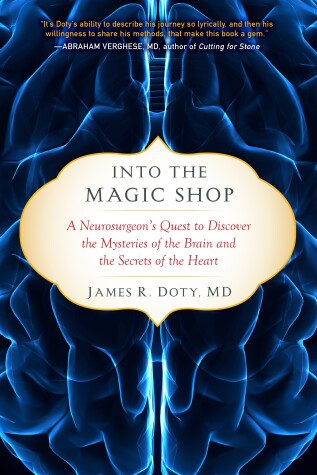
The award-winning New York Times bestseller about the extraordinary things that can happen when we harness the power of both the brain and the heart
Growing up in the high desert of California, Jim Doty was poor, with an alcoholic father and a mother chronically depressed and paralyzed by a stroke. Today he is the director of the Center for Compassion and Altruism Research and Education (CCARE) at Stanford University, of which the Dalai Lama is a founding benefactor. But back then his life was at a dead end until at twelve he wandered into a magic shop looking for a plastic thumb. Instead he met Ruth, a woman who taught him a series of exercises to ease his own suffering and manifest his greatest desires. Her final mandate was that he keep his heart open and teach these techniques to others. She gave him his first glimpse of the unique relationship between the brain and the heart.
Doty would go on to put Ruth’s practices to work with extraordinary results—power and wealth that he could only imagine as a twelve-year-old, riding his orange Sting-Ray bike. But he neglects Ruth’s most important lesson, to keep his heart open, with disastrous results—until he has the opportunity to make a spectacular charitable contribution that will virtually ruin him. Part memoir, part science, part inspiration, and part practical instruction, Into the Magic Shop shows us how we can fundamentally change our lives by first changing our brains and our hearts.
I'm not all that impressed with Into the Magic Shop. While I can appreciate the anecdotal nature of the first part of the book where an old woman teaches a young Doty mindfulness under the guise of "magic", but I don't necessarily believe it. I believe that mindfulness is a great way to dispel and manage stress, but the way Doty presents it, honestly... this whole book feels like a humble brag.
The entire second half of the book, after going through the steps of how suggests the reader practice mindfulness, follows with Doty discussion of how much money he is worth and how he just luckily stumbled into the position he is in by wishing for it. His narrative often made him sounds a little incompetent and impossibly lucky, and *that's* what I don't buy. Success takes some visualization, but it also takes a lot of hard work. Trust me, if you fail your classes and then visualize yourself getting into med school, you're not getting into med school, you know?
The underlying themes are good here, but the writing and presentation are so egotistical. This wasn't the book for me.
Reading updates
-
Started reading
-
21 September, 2018:
Finished reading
-
21 September, 2018:
Reviewed
